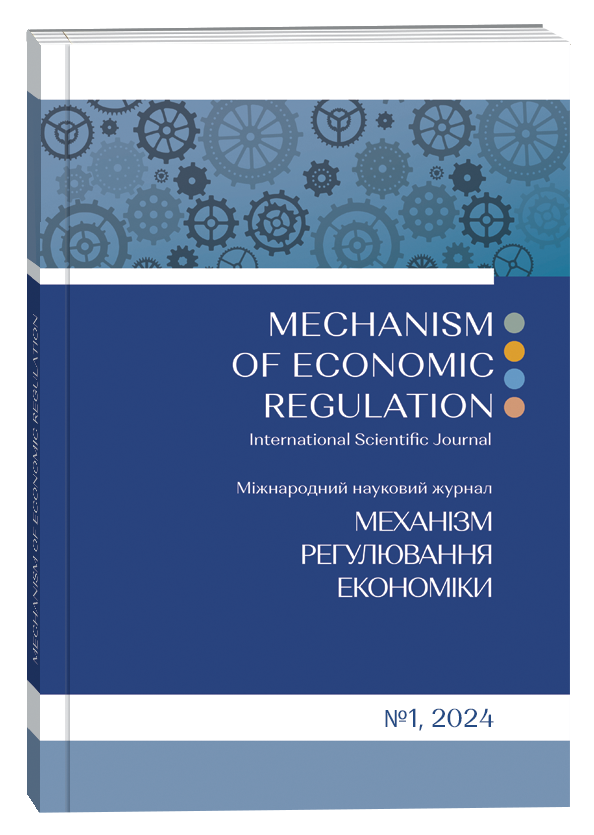CROSS-CULTURAL MANAGEMENT AND INTERCULTURAL COMMUNICATION: RESPONSE OF GLOBAL MIGRATION
Abstract
The policy of openness in economic and cultural aspects, as well as interactions with foreign partners, necessitates the relevance and importance of studying the cross-cultural specifics of both corporate and governmental activities. New operational conditions require new knowledge, approaches, and skills. To maintain competitive advantages, every enterprise must clearly define its own competency standards, including cross-cultural competencies, and corresponding personnel competency standards. Therefore, the theoretical approach to forming cross-cultural competencies among personnel presented in the material will assist enterprise management functioning in global market segments in shaping their own standards. The issues of methodology and basic concepts of linguistic and cultural studies as a science devoted to the study of the national picture of the world, language consciousness, and the peculiarities of the mental and linguistic complex are considered. In the era of global migration, labor forces in contemporary enterprises have become multicultural and ethnically diverse. The successful operation of companies requires leaders and employees to master the toolkit of cross-cultural management. The theoretical analysis of the concept of "cross-cultural management" encompasses defining it as a science, a type of management, cooperation, competence, and relationship management. In the era of global migration, labor forces in contemporary enterprises have become multicultural and ethnically diverse. Companies with employees from various cultural backgrounds are seen as entities that create opportunities for realizing the potential of all members of society, regardless of their physical, intellectual, cultural, linguistic, national, and other characteristics. The theoretical analysis of the concept of "cross-cultural management" encompasses defining it as a science, a type of management, cooperation, competence, and relationship management. As a result of the conducted theoretical research, it is established that to understand the importance and role of cross-cultural management as a scientific category and practical tool, this issue should be considered in light of the main challenge of modernity - global population migration.
References
Batalova J. Top statistics on global migration and migrants. Migration Policy Institute: Washington, DC, USA. 2022. URL: https://www.migrationpolicy.org/article/top-statistics-global-migration-migrants (дата звернення: 01.02.2024).
Hofstede G. Culture’s Consequences: International Differences in Work-Related Values. Beverly Hills CA: Sage, 1980. 328 p.
Hall W. Managing cultures: Making strategic relationships work. Chichester, UK: John Wiley & Sons, 1995. 312 p.
Nancy J.A. International Dimensions of Organizational Behavior. Boston: Kent Publishing. 1986. DOI: https://doi.org/10.1177/017084069001100415
Thomas D.C. Cross-cultural management. California, Thousand Oaks: Sage Publications, Inc, 2008. 327 p.
Earley P., Christopher, Cristina B. Gibson Multinational Work Teams: A New Perspective. New York : Lawrence Erlbaum Associates, Inc, 2002. 352 p.
Iles P., Zhang C.L. International Human Resource Management: A Cross-Cultural and Comparative Approach (Cipd Publications). CIPD Kogan Page; 1st Edition, 2013. 440 p.
French R. Cross-cultural Management in Work Organizations. Chartered Institute of Personnel and Development, 2007. 213 p.
Никифоренко В.Г., Кравченко В.О. Крос-культурний менеджмент і управління персоналом як складові системи стратегічного управління. Вісник соціально-економічних досліджень: збірник наукових праць. 2018. Вип. 1(65). С. 103‒118.
Жуковська А.Ю. Кроскультурний менеджмент як інструмент інклюзивного підприємництва. Східна Європа: економіка, бізнес та управління. 2020. № 26. С. 67‒75. DOI: https://doi.org/10.32782/easterneurope.26-11
Тодорова Н.Ю. Крос-культурний менеджмент. 2009. URL: https://ea.donntu.edu.ua/bitstream/123456789/2021/1/CCM_Todorova.pdf
Ареф’єва О.В. Крос-культурний менеджмент як детермінанта формування конкурентоспроможності підприємства. Науковий вісник Ужгородського національного університету. Серія: Міжнародні економічні відносини та світове господарство. 2018. Вип. 20 (1). С. 19–22.
Pochtovyuk A. Cross-cultural management and linguoculturology: the Ukrainian view the interaction of culture and language. Innovations in the Education of the Future: Integration of Humanities, Technical and Natural Sciences: International collective monograph. FIT CTU in Prague. 2023. Chapter 26. pp. 471-488. DOI: https://doi.org/10.5281/zenodo.10260713
Загнітко А.П., Богданова І.В. Лінгвокультурологія. Вінниця : ДонНУ імені Василя Стуса. 2017. 287 с.
Batalova, J. (2022). Top statistics on global migration and migrants. Migration Policy Institute: Washington, DC, USA. Available at: https://www.migrationpolicy.org/article/top-statistics-global-migration-migrants [in English].
Hofstede, G. (1980). Culture’s Consequences: International Differences in Work-Related Values. Beverly Hills CA: Sage, 328 p.
Hall, W. (1995). Managing cultures: Making strategic relationships work. Chichester, UK: John Wiley & Sons, 312 p.
Nancy, J. A. (1986). International Dimensions of Organizational Behavior. Boston: Kent Publishing. DOI: https://doi.org/10.1177/017084069001100415
Thomas, D. C. (2008). Cross-cultural management. California, Thousand Oaks: Sage Publications, Inc, 327 p.
Earley, P., Christopher, Cristina, B. Gibson (2002). Multinational Work Teams: A New Perspective. New York: Lawrence Erlbaum Associates, Inc, 352 p.
Iles, P., Zhang, C. L. (2013). International Human Resource Management: A Cross-Cultural and Comparative Approach (Cipd Publications). CIPD Kogan Page; 1st Edition, 440 p.
French, R. (2007). Cross-cultural Management in Work Organizations. Chartered Institute of Personnel and Development, 213 p.
Nykyforenko, V., Kravchenko, V. (2018). Kros-kulʹturnyy menedzhment i upravlinnya personalom yak skladovi systemy stratehichnoho upravlinnya. Visnyk sotsialʹno-ekonomichnykh doslidzhenʹ: zbirnyk naukovykh pratsʹ, 1(65). 103–118.
Zhukovsʹka, A. (2020). Kroskulʹturnyy menedzhment yak instrument inklyuzyvnoho pidpryyemnytstva. Skhidna Yevropa: ekonomika, biznes ta upravlinnya, 26, pp. 67–75. DOI: https://doi.org/10.32782/easterneurope.26-11
Todorova, N. (2009). Kros-kulʹturnyy menedzhment. Available at: http://eepl.at.ua/_ld/0/64_eejpl_journal_2.pdf [in Ukranian].
Arefyeva, O. (2018) Kros-kulʹturnyy menedzhment yak determinanta formuvannya konkurentospromozhnosti pidpryyemstva. Naukovyy visnyk Uzhhorodsʹkoho natsionalʹnoho universytetu. Seriya: Mizhnarodni ekonomichni vidnosyny ta svitove hospodarstvo, 20(1), pp. 19–22.
Pochtovyuk, A. (2023). Cross-cultural management and linguoculturology: the Ukrainian view the interaction of culture and language. Innovations in the Education of the Future: Integration of Humanities, Technical and Natural Sciences: International collective monograph. FIT CTU in Prague. Chapter 26, pp. 471–488. DOI: https://doi.org/10.5281/zenodo.10260713
Zahnitko A., Bohdanova I. (2017) Linhvokulʹturolohiya. Vinnytsya: DonNU imeni Vasylya Stusa, pp. 113–120. Available at http://r.donnu.edu.ua/bitstream/ [in Ukranian].


